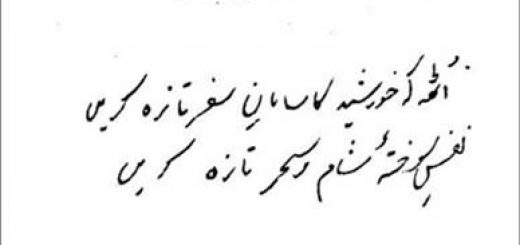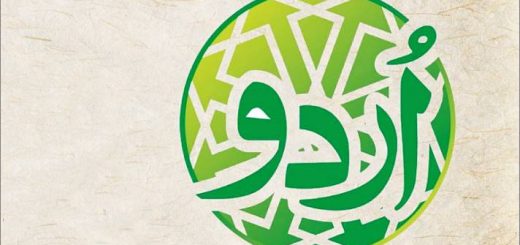The Meaning of Pakistan – By A. F. Sarwari
Shortly after I got back to sunny California after visiting Pakistan, I was unaware my life would change so drastically, but it did!
Shortly after I got back to sunny California after visiting Pakistan, I was unaware my life would change so drastically, but it did! I wonder if ‘change’ is the right word because I somehow managed to retain the fundamental ideas of who I am inertly. So I guess I simply developed and evolved. But, then that assumes I steered the right course’. I go by that assumption, my heart tells me to. Its surely not wise to start a political discourse with matters of the heart, but I think when we begin to think of revolutionizing the culture of fundamentalism into one of democracy the unit we deal with isn’t the society but the individual. Which almost brought me close to rediscovering the description of being a fundamentalist, but I choose to shorten the lengthy stereotypic analogies I will be making in there and say, ‘fundamentalists in my opinion are those who take Islam to be a religion, and all other’s (Muslims) are those who take Islam to be a Deen (way of life)’.
Likewise the practical people, the real historysmiths, those who left a legacy and affected thousand’s economic condition, thought the creation of Pakistan to be for the purpose of having a nation where the Muslims of South Asia could have a voice of their own among the clamor of growing Hindu fanaticism in politics. And on the other hand those who chose to stand in the sidelines during the hub of the partition, taking a position that was neither here nor there midst a moral discussion committed an unethical folly in the book of history. Some amongst their kind also went ahead to call Pakistan a kafir state and label Jinnah a Kafir. Ironically the very same people, after the creation of Pakistan, sloganize the entire effort of the Muslims of India for the creation of an ‘Islamic State’.
The pictures in my mind are so vivid. The visit was one that freed me in ways that revisiting the past ever can, but it was more than all that. I looked at the painting of Pakistan up on the wall of the world museum, a painting with an unknown name and I saw, the Ice Candy Man, the people praying on the roundabouts, the metropolitan Karachi at three AM, the Faisal Mosque, the proud CS professor of UIT, the surprised beggar who suddenly forgot his name because I asked, the balanced middle class, the flower stalls alongside the mazzars, the culture of poverty and aristocracy many have challenged but none promised to abolish, the worn out livestock-research-professor returning form a week’s tour, the molvee and the combination of his bad voice and microphone, the student leader at Karachi University who shouts, ‘tareek gava hey, haq-o-batil ki jang kitni hi mushkil or taveel sahi’¦ jeet fate-haq ki he hoti hey!!’, the picture of those killed in the air force battles, the signs of various political parties, the soothsayer who has no time to contemplate his own progress and the taste of coffee when a group of like minded radical thinkers sit at a table and dream out of that country then back to ground and off to action.
This motion is real, and as real as wheels turning behind the mechanism of a great design. These are no arbitrary combinations, they are Divine, I can see the grandeur of the Painter just by watching the painting, listening quietly to that silent white voice, that is more subtle then rose scent. I sometimes doubt I ever heard it, that it ever crossed my path, but more often I am sure this is
what I heard! The interpretation of this painting has now changed hands and these are in the hands of the revolutionaries. A set of new minds who bare not the burdens of the past, they have knowledge, they understand what went before and what may come, they believe in giving, they know what they have not in their society, they have a burning desire to create a society where giving to another feels like giving to oneself, a collective social system is what they have in mind, death greets them before sleep every night, truth walks with
them hand in hand, responsibility for their country’s well being is an opportunity to reach their fullest potential and lastly, they differ from the crowds because like Einstein they believe that there ought to be some revelation to guide human course and that human reason and intellect alone can’t yield the positive of all ways’¦ so in The Quran Faith prevails.
The Quran is unique only when it is bound in a book, which says atop it, ‘The Holy Quran’. Otherwise its concepts are universal. Its author is present where there is anything present, and where there isn’t, where there is good governance and where there is no governance. He/She isn’t out there but in here, in our ability to do good and in our energy to fight evil. Evil is energy and like other forms of energy can be transformed, guided, directed and maneuvered to a course that is more yielding to inner peace for the greater
number, and towards felicity for those and only those who cultivate respect for the laws of cause and effect. If Islam came to banish one thing it was symbolism: the idea that leaves us hanging on to the structure when the winds of time have blown the foundation of understanding away. As long as the symbols help us to gather the masses to submit to laws that operate within the universe (Allah), we are on the right track. But dear self, that is not the case. Pakistan is increasingly becoming symbolic, its most important asset, the
people, are failing to understand that Faith simply means going by universal laws that are essentially similar for everyone and that, it is just a matter of studying patterns.
Politics isn’t a theory formulated on the whims of a scientist J, it’s actually a science established from naturally derived methodical hypothesis, that is easy to challenge if something is false. We shouldn’t confuse the inability of science to establish the absolute truth with its ability to help us understand the world around us. ‘Pakistan wasn’t created to be a theocratic state to be ruled by priests with a divine mission’, but instead a system of governance that was to be essentially secular and democratic, just like the elements of an Islamic state should incorporate within it, if we choose to see the true Islam in the perspective of Deen and not Madhab.
Jinnah, was a man who chose people regardless of their religion, caste or creed to do a certain job essential for that time, which proved that he was a just man. Truth and its various components like knowledge and expertise should be acknowledged and appreciated regardless of the source. That in my opinion is being a true Muslim. Any good book is Islamic, any activity enhancing a person’s nafs (soul) is Islamic, any language you learn that helps you communicate your purpose of life which is unique and positive (even if it isn’t
Arabic) is Islamic, any expression you choose to convey the message which is a means to an end (as long as innocent lives aren’t at stake) is Islamic, Any marketing for a cause that is modern outward looking and gives human beings a greater economic standing so they are in a position to think about their higher selves (within the constraints of morality), is Islamic. The confusion and frustration we incur in today’s complex society over what is moral and what is immoral derives form the word, ‘Islam’ itself. Peace, Inner peace is the determinant, if you feel your choice will yield to peace for yourself and others go for it, keep in mind the law of cause and effect (experience). The Quran defines believers as those who give to others even when they themselves are in need. There should be an understanding of how our lives transcend form one dimension to another after death. ‘The Phenomenon of Nature and the Quran’, by Dr. Abdul Wadood is an awesome start to understanding how scientific the Quran is in explaining our purpose, being and relation to the rest of the entities around the universe in terms of energy. Its important we understand how temporary our material and egoistic attachment to the world is, and how it’s a tool we can use to mould our journey to or from our destination.
The reason I have concentrated on the metaphysical dimension of Politics in Pakistan is because for long now I have seen religion being exploited for the purpose of defining the identity of my Nation. Every leader with their own idea, and their own agenda, and so I have cried in the past for all those who have suffered the caravan of ills due to the fact they didn’t celebrate their reason for being, when yet they are made of the very fiber that moulds the greatest of all nations. But today I want all of us to have our own agendas, to be the leaders we have waited for all those times we were in darkness, I want us the people of Pakistan with all the diverse hues in the nooks and corners of the painting to rescue ourselves out of our own darkness, because we really are unique and exquisite and who will think us so if we don’t? God works like that’¦he/she doesn’t rescue us out of darkness, therein only the devil resides (human
weakness). God comes where there is light, the very fact that we realize that there isn’t no one coming, and that we got to do it ourselves’ is a testament that we are alive and we have the Divine in us still waiting to flutter open.
As the individual Nafs gets its expression and nourishment through the operating system of this Nation, Pakistan, I hope this nation’s Nafs too, (which is a collective nafs of all the awakened souls), rises to the challenge and remains faithful to the people’s development.
I think Allama Iqbal’s idea of Nafs was the Khudi. Its concentration was ‘Consciousness’, just like the Quran. I am hopefull that since the new revolutionaries don’t have to waste time starting from a void, by abandoning all preconceived notions thereafter creating a pressure for that void to be filled, and then filling it with one source of light and love (God), one can simply start with the Quran. For the reason that our foundation is, ‘La ilaha Illallah, Muhaumadur rasulullah’ (There is NO God, but Allah, And Mohammed is his messenger)
‘Khudi ko ker bulland itna key har taqdeer sey pehley
Khuda baandey sey khud Poochey Bataaa teri raza kya hey’
Published with compliments and thanks to Sarwari at Pakistani Students Association at San Jose State University













